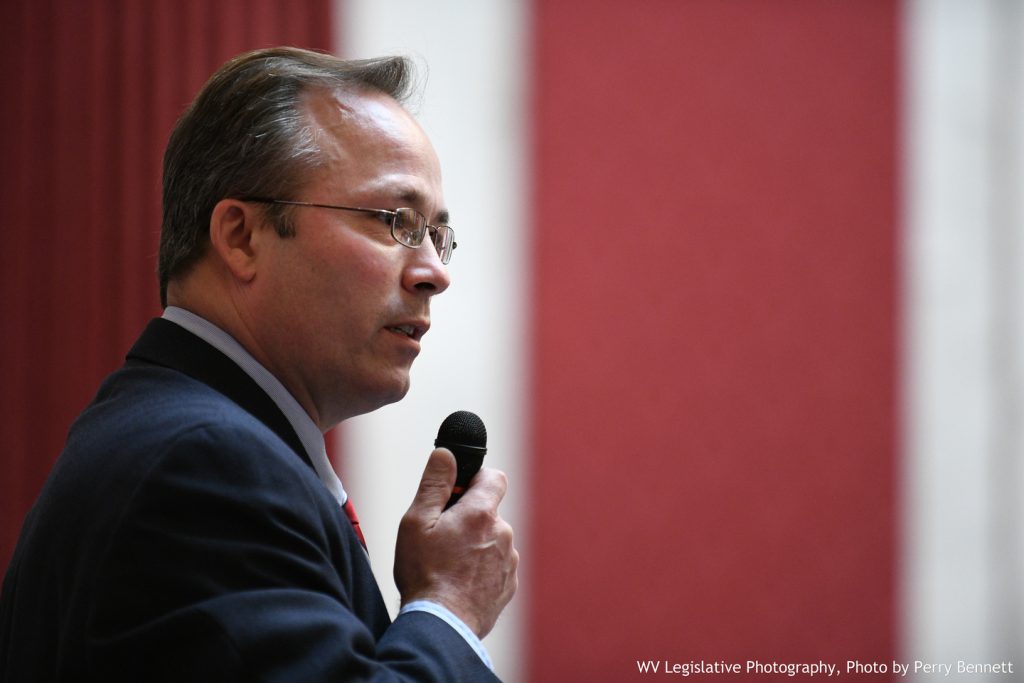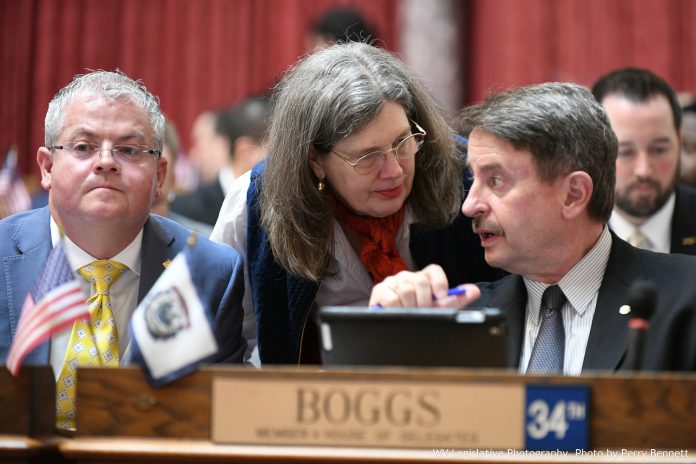Amendment Passes to Help Fund PEIA
A bill that has attempted to make its way through the Legislature previously might see some movement this session.
A public hearing on House Bill 4268 was held in the House Judiciary Committee this week. The bill, dealing with co-tenancy of land, has been introduced in some form for several years. HB 4286 was discussed at length in the House on Wednesday, during second reading or better known as the amendment stage. Several amendments were offered, with four being adopted on the floor.
“This bill would force us all to sell our property, not at a price we want, but one chosen,” said Delegate Barbara Fleischauer, D-Monongalia. “My property, under this bill, could be sold – gone, disappeared.”
Four amendments to the bill were adopted.
Delegate Phil Isner, D-Randolph, offered an amendment to use money from re-claiming abandoned wells to create a funding source for PEIA. He said it would not harm the bill, however, Delegate John Shott, R-Mercer, said he opposed the amendment.
“Part of the goal of dealing with PEIA is to find a predictable source, there’s no way to predict what’s going to come out of this,” Shott said. “We have thousands of abandoned wells in this state, we have a fund in existence to address that.” Isner’s amendment was adopted.

An amendment offered by Delegate Mike Folk, R-Berkeley, was adopted. Folk said the amendment was intended to handle family disputes, requiring a certain number of people be involved before a percentage of ownership kicks in. The amendment was adopted.
The bill has promise over in the Senate, as Democrat Sen. Glenn Jefferies, D-Putnam, said he would back the co-tenancy legislation.
On Thursday, the bill was up for passage, and Judiciary Chairman Shott said the bill’s purpose deals with co-owners of a single track.
“Nobody has any higher rights than anybody else, all co-owners have equal rights to the property,” he said. “This bill creates a method to resolve the deadlock with a small minority wishes to refrain from participating and deny the majority of 75 percent or more from utilizing their asset and getting a benefit out of it.”
The bill was passed in the House 60-40. The Senate received the House message on the legislation Friday, referring it to two committees before it will be considered before the full Senate.

